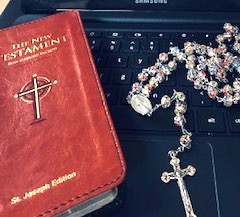 Why storytelling?
Why storytelling?
Because, throughout known history, humans have always told stories. Let’s face it: writing is all about storytelling. Storytelling has been around since the dawn of time. The Australian aboriginal people painted symbols from stories on cave walls so they could remember the stories told. In the past, before the written word, people wore tattoos to show their families’ genealogical histories and announce their standing in the tribal community. Before the written word, storytellers passed on tribal stories, community history, and accepted morality.
A seanchaí was a traditional Gaelic storyteller and history teacher. In Scottish Gaelic, the word means a bearer of “old lore.” The American Navajos used storytelling to teach children how to live a good life and teach their belief that there was no separation between the physical and spiritual life.
Often, indigenous people used stories to teach cultural values. For example, in the Odawa Tribe, boys are often told the story of a young man who never took care of his body. Because of his neglect, his feet failed to run, and predators caught him. The story taught boys to take care of their bodies. These oral stories passed down the history, values, and cultures of a people.
What about us, Catholic Writers?
As Catholic storytellers, we pass down our faith’s morals and belief in Jesus. We share the powerful story of salvation. Through entertaining tales of all genres, we attempt to teach both adults and children the faith given to us. It is more than a form of entertainment. Our talent is a gift given to us by the Holy Spirit.
It reminds me of the Bible story about the gift of the talents. One man buried his and was judged harshly by the Master. So it is with us. God gave us the gift of storytelling, and it is a gift to be used, not buried. We may write blatantly Catholic works, or our work may never be religiously specific. However, as Catholics, our morals and faith shine between the sentences of our work. A writer cannot put words on paper without placing a part of themselves in their work. Even if the author’s persona seems hidden, the writer is always there, between the words.
Where do you find your inspiration?
I don’t know about you, but each book I write seems to come to me differently. My first novel came in one night, in a dream. Perhaps that was the only way God could find me quiet enough to reach me. My second novel, Into the Way of Peace, came to me during Eucharistic Adoration. As I prayed for the other people in the chapel, I began to wonder about their prayers. Within minutes God gave me the story that became my second book. I know writers who are inspired by a simple photo and others inspired by their family history.
The point is not where you think you may find your inspiration, but that you know that inspiration came from God. There are times when I tried to inspire myself or come up with a tale. As soon as I went to write it, I realized it wasn’t any good. I’m sure, as a writer, you have experienced the same feeling. The work becomes a struggle. You can’t even imagine what to do with it or where the story may be going. That’s how I know it is not coming from God but me. It doesn’t work for me. Some may call it writer’s block, but I call it God block.
Is your storytelling unique and inspired?
Yes! You may be wondering what all this has to do with you. After all, you may think, I write non-fiction. Well, the answer is that there is no difference. You may be writing about truth, but you will tell that truth like no other writer. I could give the same facts to three different writers, and none will relate the story in the same way. For example, if it is a crime story, one will emphasize the investigation, another the victim’s tale, and another the setting of the offense. So whether you are a fiction or non-fiction writer doesn’t matter. You are still a storyteller who is passing down our Christian faith, culture, and morals. What a wonderful gift and a tremendous responsibility.
Is your storytelling important?
What we do is extremely important. Whether we write for children or adults, our gift is to let the Holy Spirit inspire us to reach the people He wants to save. It could be through a massive theological thesis or a silly, humorous children’s tale. The Holy Spirit can speak through a historical romance or a murder mystery. Different ways of communicating faith reach different people. Never look down on any kind of storytelling. All is a gift.
Our storytelling teaches and passes on the revelations of Jesus. He spoke in parables to reach the people of His time and place. Those parables and Beatitudes reached my heart. Let your writing flow freely, whether it be tales to make children laugh or words to inspire the masters. Your only job is to follow the inspiration and let God’s Holy Spirit flow where and to whom He desires.
We storytellers need to support each other, not judge each other. That is what the Catholic Writers Guild is all about. The secular world of publishers and distributors may dole out rejection, but we should never reject each other. We are all here to tell the most extraordinary story ever told. In our way and with our talent, we are here to share the story of salvation.
Copyright 2020 Karen Kelly Boyce
Photo copyright 2020 Karen Kelly Boyce. All rights reserved.